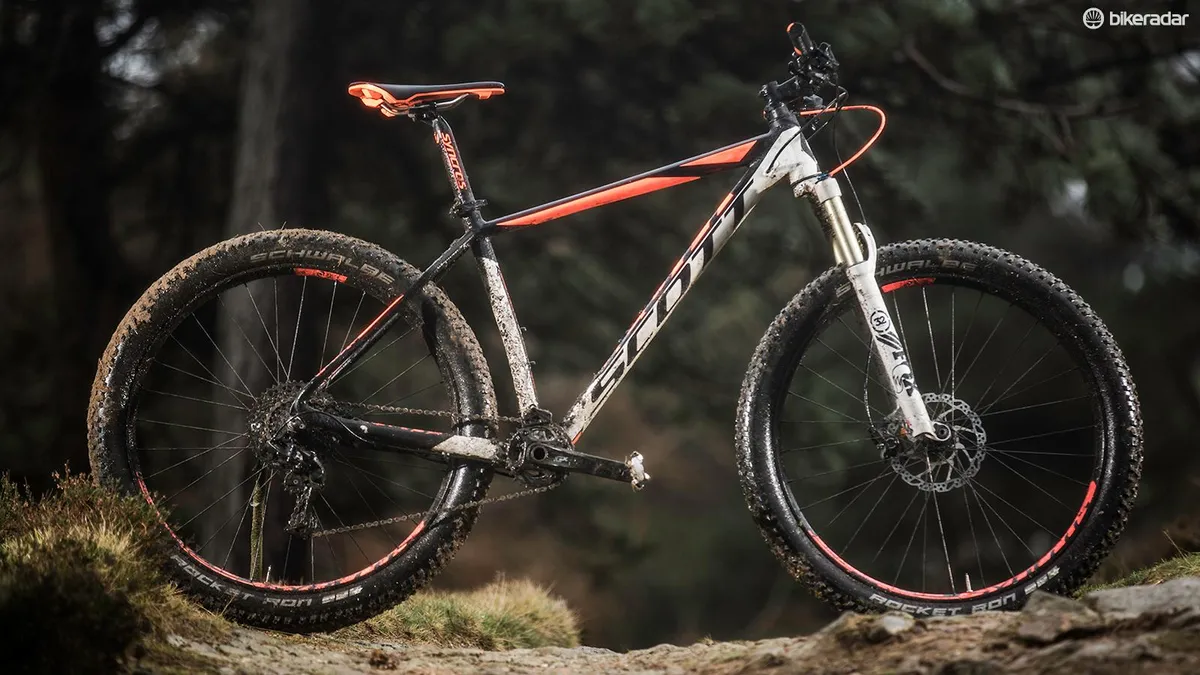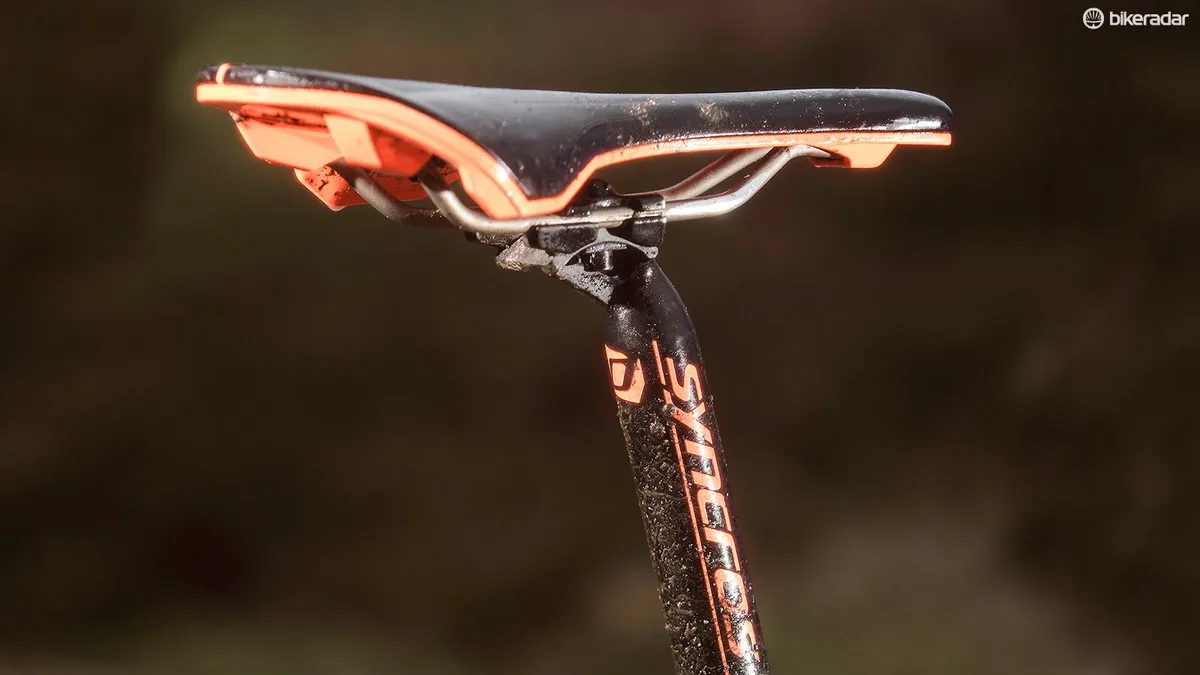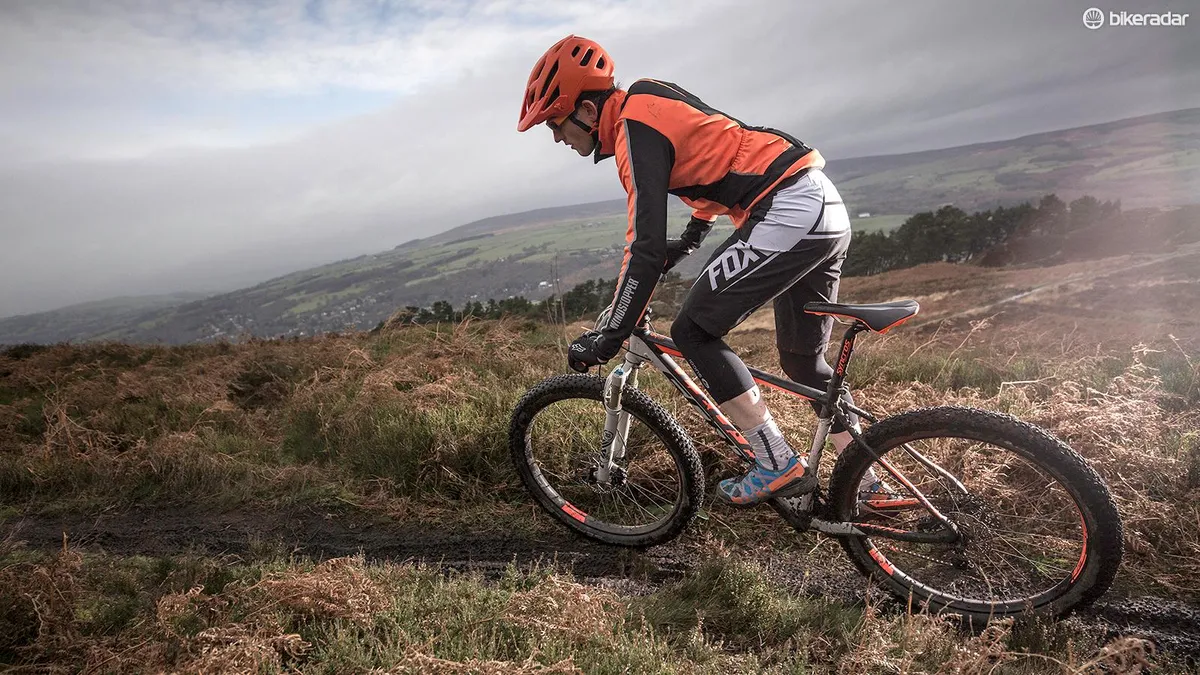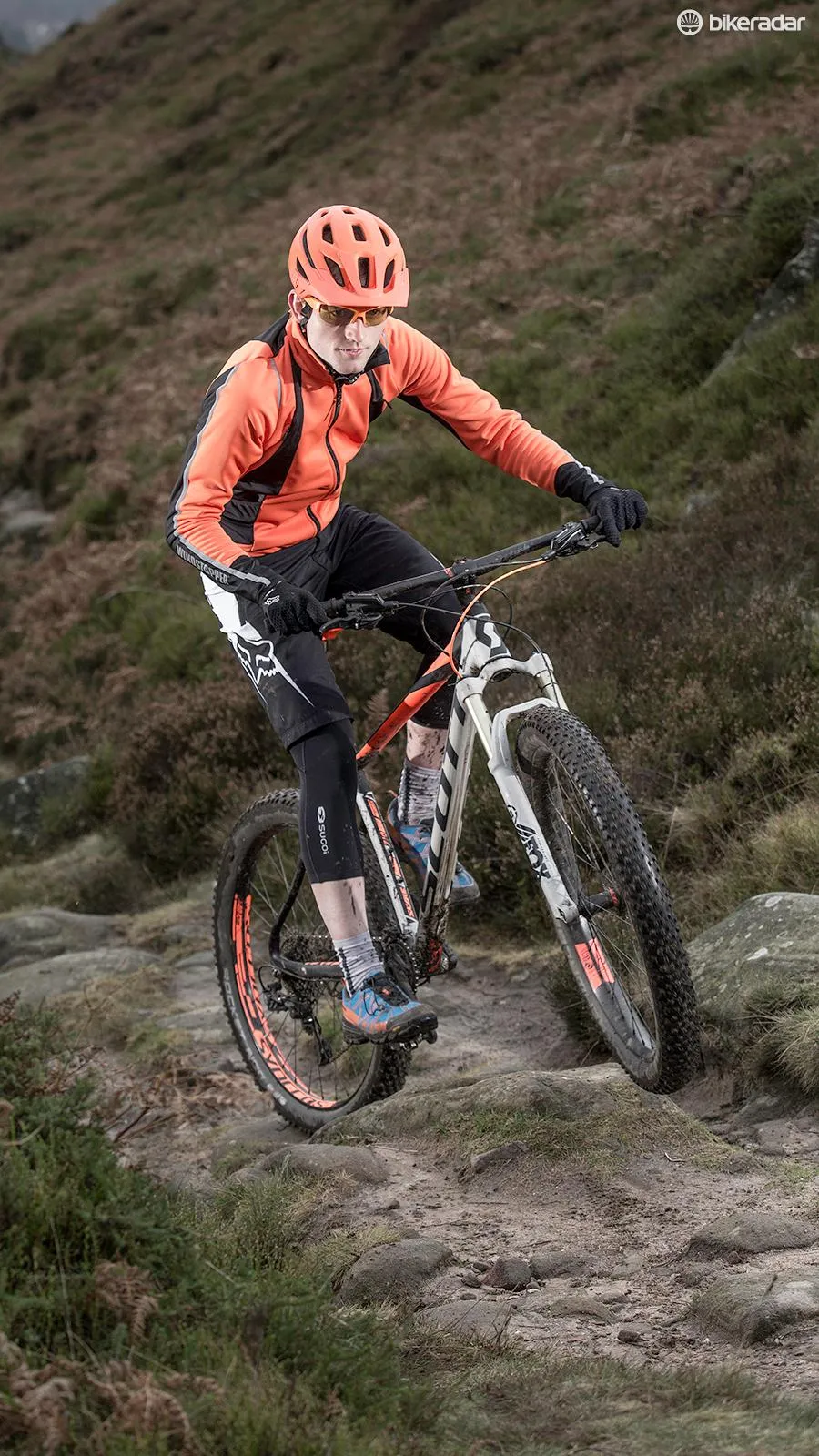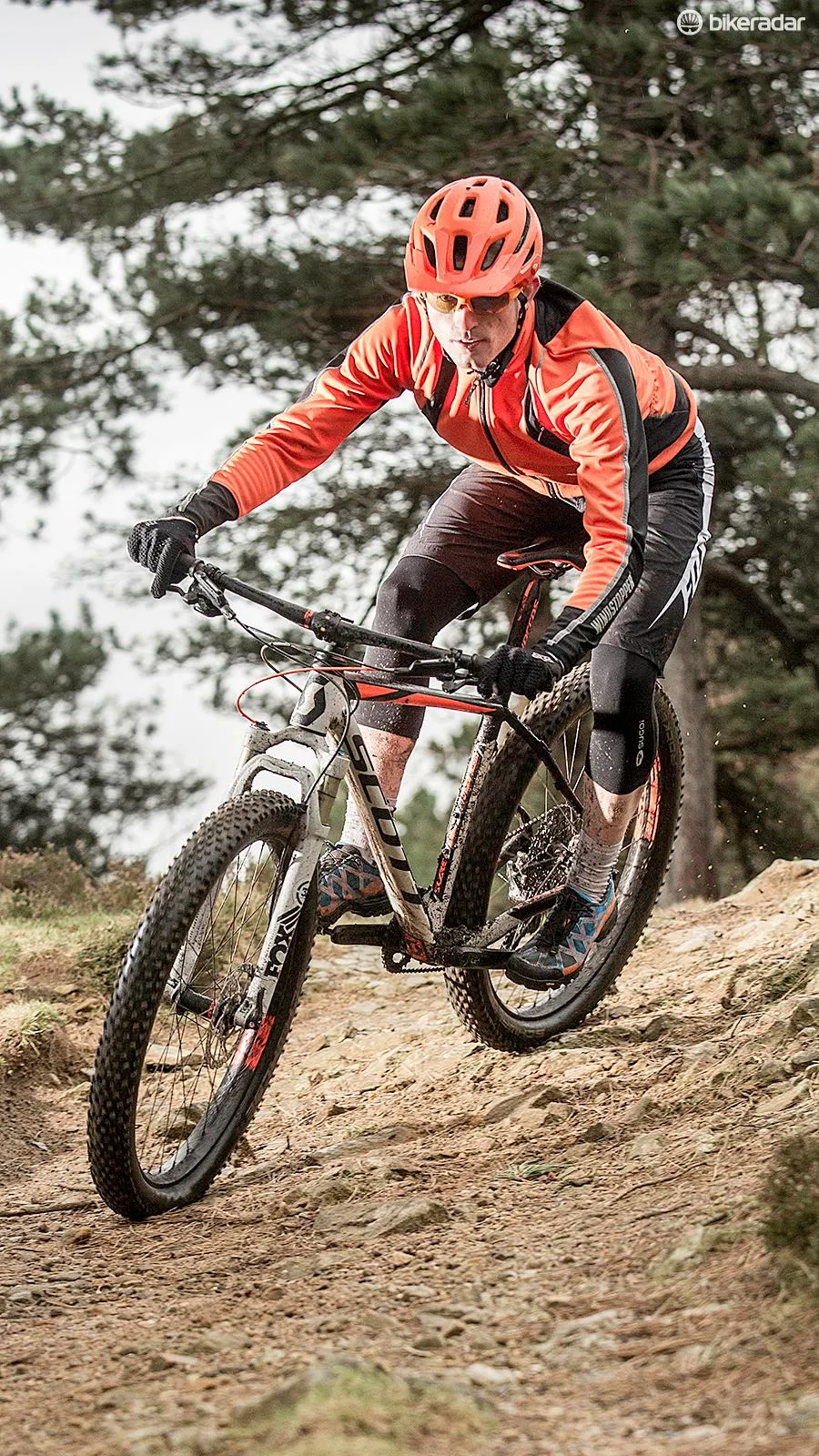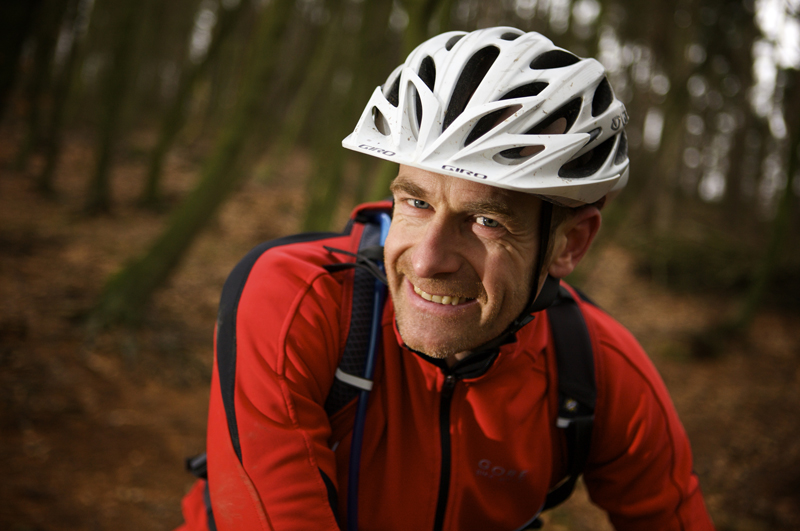Scott’s Scale is potentially the ultimate off season, off piste fun bike for racers who want to relax a bit or epic rough riders who don’t want the extra weight and complexity of full suspension.
Race-derived chassis
The highly manipulated, super light, broad and flat main tubes of the front end come straight from Scott’s alloy Scale race frames. Internal cable guides (with ports for Shimano’s XTR Di2 in case you want to posh up your ‘plus’ bike with electronic shifting) spit the controls out ahead of the PF92 BB, while a small chain guide sits on the front derailleur post on the kinked seat tube.
A quick-release clamp lets you drop saddle height manually for now, but the frame is ported for an internally or externally routed dropper. Bridgeless chainstays and flattened and snaked seatstays give masses of mud room and space for a 29er wheel, though the Boost spacing means you won’t be able to just chuck your old race wheels in (at least, not without adaptors).
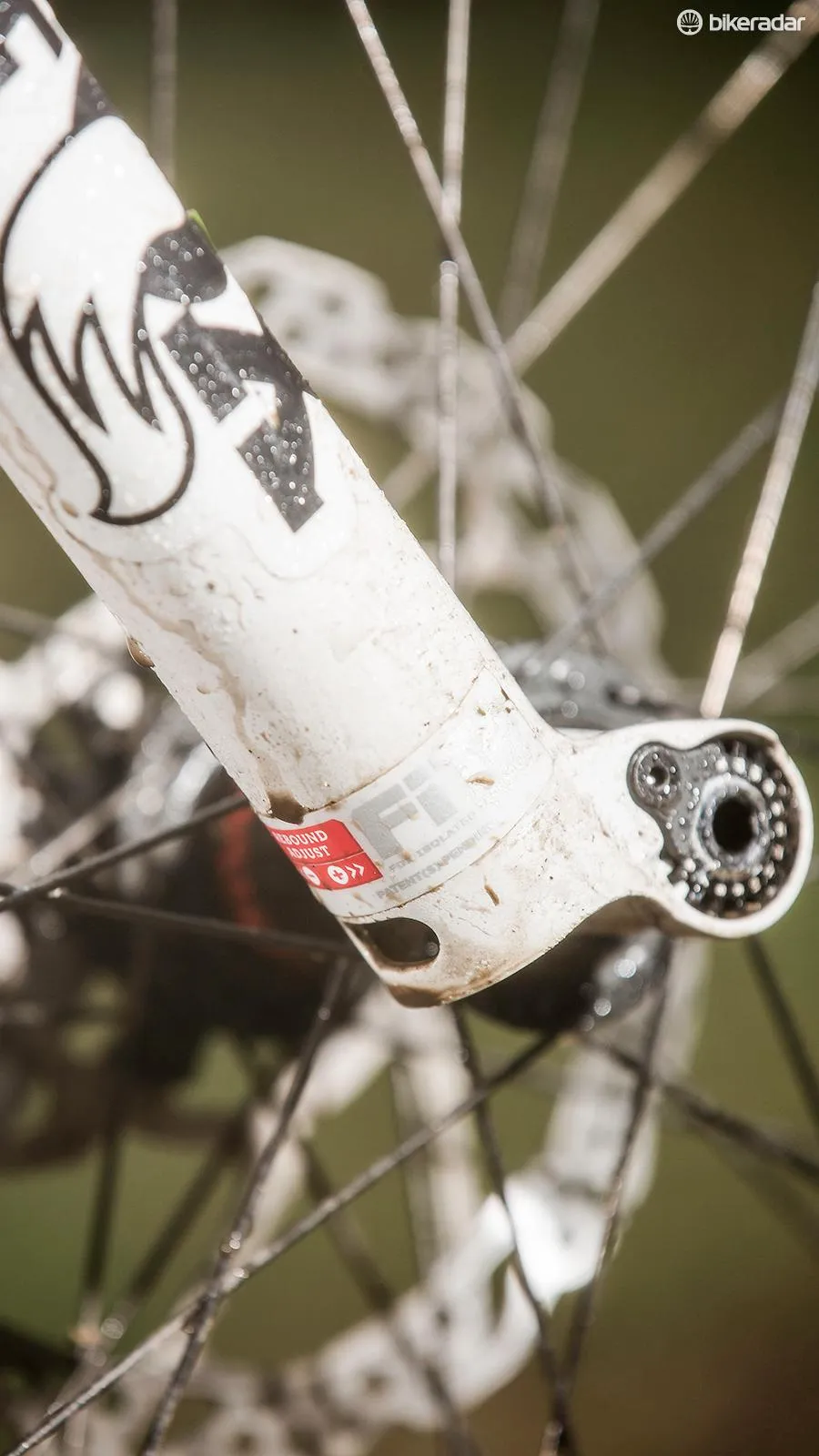
The Scale gets a lightweight, race-bred Fox 32 fork
The XC vibe is reinforced with a lightweight Fox 32 fork with three-position compression damping control lever on the bar. The 71mm wide Schwalbe Rocket Ron tyres are a fast rather than high-traction choice, and the 40mm Syncros rims create a light overall wheel package.
The 740mm wide bar and 65mm stem are a good balance for XC/trail riding, and the Shimano Deore brakes get a 180mm front rotor for amplified power. While we can’t fault the functionality of the 1x11 transmission, the Scale 710 is expensive for a SRAM GX-equipped bike, especially as the cranks are the cheaper GX-1000 version with solid rather than hollow arms.
More than a match for conventional bikes
Even before lifting it up and hefting it, it’s obvious straight away that the Scott is a proper performance machine. While the skinny rear stays take the edge off big hits well, it’s got a precise and power-friendly feel that you can feel clearly even through the fat tyres.
The Schwalbe rubber and light wheels are eager to turn that efficient feel into an enthusiastic response on the trail too. Add the fork-firming or complete-lockout options from the under-bar lever and you've got a plus-sized beast that was competitive in testing against a mixed herd of conventional hardtails and full-suspension bikes on smoother climbs.
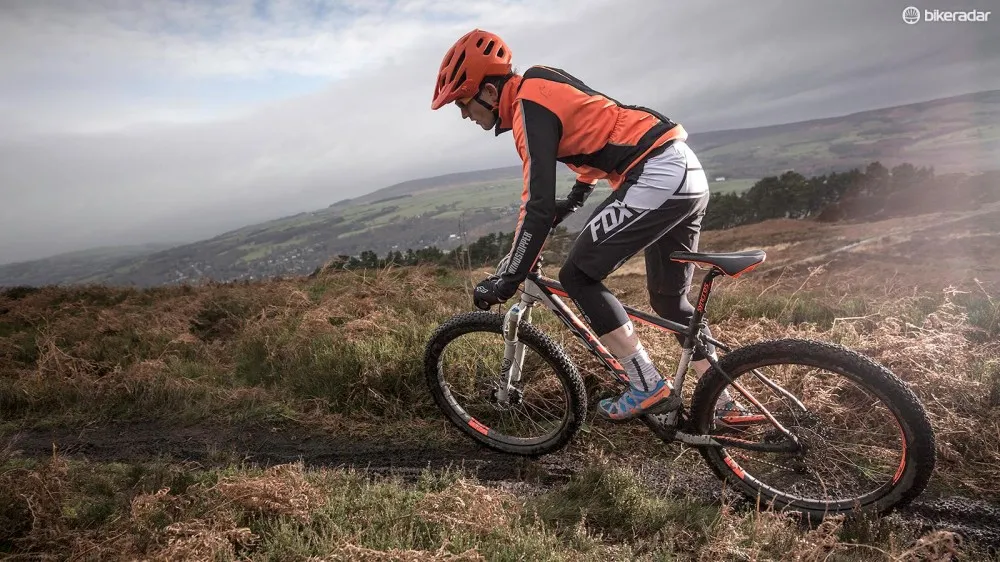
As we suspected from its ancestry, the Scale 710 Plus is no slouch
Having ridden 650b and 29in wheeled Scales, we’re well aware that they wouldn’t just be keeping pace but a clear country mile ahead on the climbs. It’s where there’s a rapid succession of blunt-edged roots and rocks that’ll make a hardtail with conventional, higher pressure tyres stumble and stutter that the plus-size Scale really shows its colours. Speed sustain is much better and traction a lot more surefooted, but there’s still enough responsiveness to keep you on track rather than getting gradually bogged down with drag.
The steering feels more prompt and direct on climbs and flat technical singletrack too, so you don’t have to make as many repeated corrections as with slacker, shorter-stemmed bikes to keep on track. The fat, flaccid tyres still sometimes drag off in irritating directions if they scuff something you’d normally miss though, and ground clearance is limited on rocky terrain. That means it’s generally better just mowing your way through the straightest option rather than trying to do something clever at slow speeds.
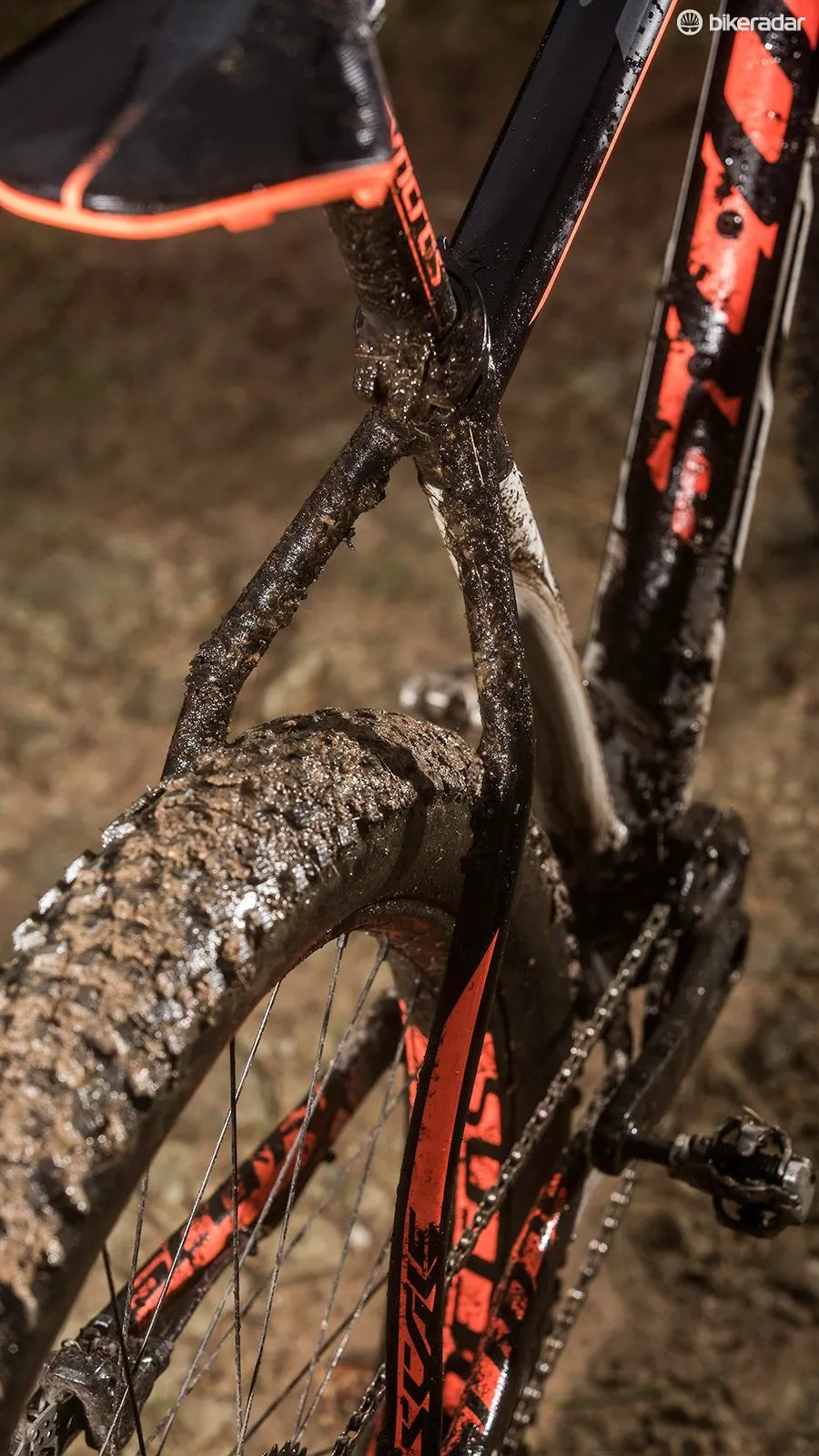
The Boost back end will take chunky 27.5x3in rubber as well as 29er wheels
While it can help with lazy climbing, plus-sizing the tyres absolutely transforms the descending abilities of the Scale. Rather than tiptoeing down waiting for the rear tyre to pop if we got it wrong, we were soon barging through boulder fields as though we were on a heavily sagged full-susser.
The relatively flexy fork and flaccid tyres inevitably mean an approximate rather than accurate approach to specific lines, but the long back end keeps it fundamentally stable and it’s light enough to hop and pop into the right spots when the trail turns faster than it naturally wants to. This all meant that post-ride Strava analysis showed some impressive segment speeds for rocky descents and technical power sections alike.
Although the Schwalbe Rocket Rons are decently surefooted in the wet, we’d still try to find a plus-size Nobby Nic to give more winterproof control up front. We’d also recommend fitting a dropper to liberate the Scale's more lairy side without having to constantly mess with the seat clamp.
